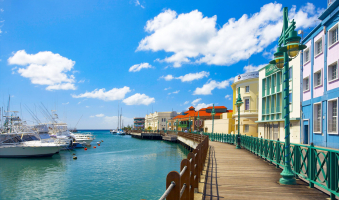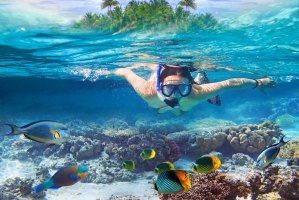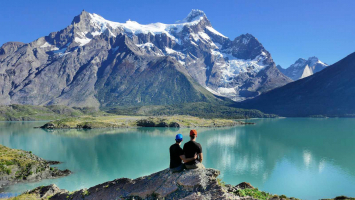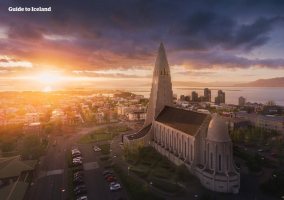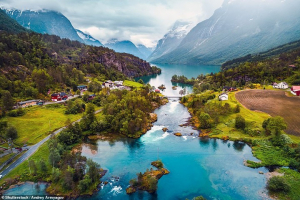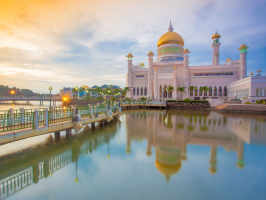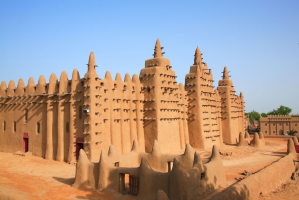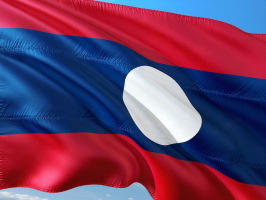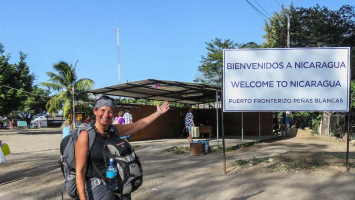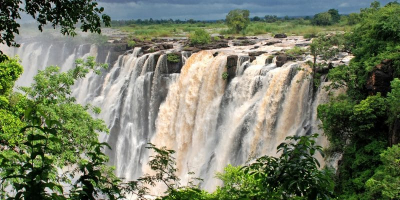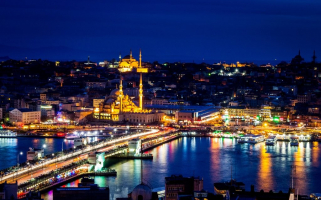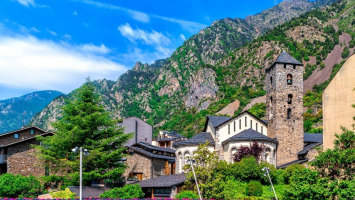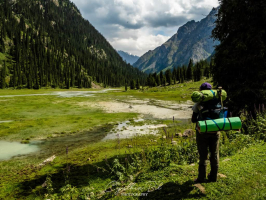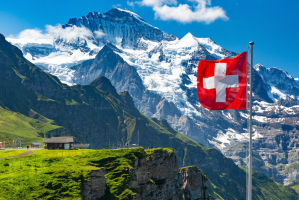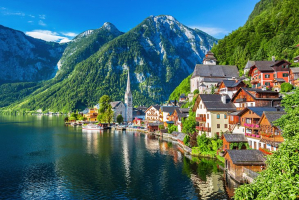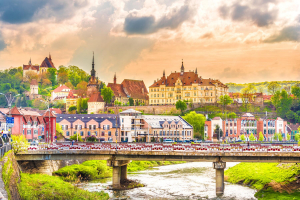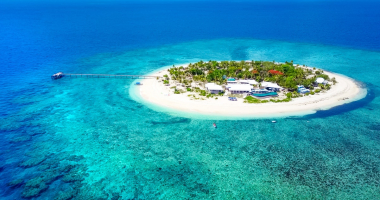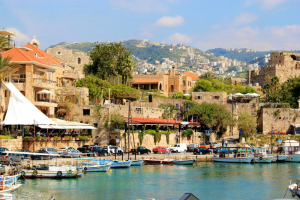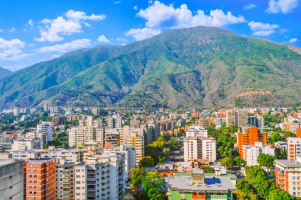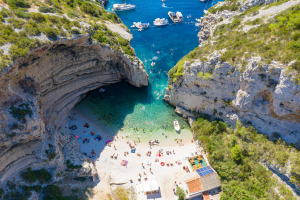Top 10 Things About Israel You Should Know
Israel boasts stunning beaches, incredible snorkeling spots, fantastic hikes, a rich, complex, and profound history, and a unique blend of cultures. It's also ... read more...a key pilgrimage place for three major religions! It's evident that this is a fascinating country to visit! Interested in learning more about this country? To get you started, here are some Things about Israel You Should Know.
-
Israel is one of the few countries that requires women to serve in the military. This is definitely one of the top Things about Israel You Should Know. Despite the fact that the mandatory service period for men is currently two years and eight months and "only" two years for women. Enlistment in the Israeli Defense Forces is necessary for all Israeli residents above the age of 18, with limited exceptions, according to the Defense Service Law.
Why is this interesting, you might ask? There will be a lot of military in Israel, especially in Jerusalem. You'll also note that there are a lot of military women! If you look closely, you will find that they are all very young, and the majority of them are very attractive... As a result, you will see a lot of tourists approaching them and asking them to take pictures, which they frequently do!

wikipedia.org 
wikipedia.org -
Israel's northern and coastal parts have a Mediterranean climate, with hot, dry summers and cold, rainy winters. Whereas the southern and eastern parts of Israel have a year-round arid environment. This is absolutely one of the top Things about Israel You Should Know. The rainy season lasts from October until early May, with the most rain falling between December and February. It is important to notice that rainfall varies enormously from the north to the south. The northern and central sections of the country receive the most rain, whereas rainfall in the southern half of Israel is negligible. On the other side, Eilat, located at Israel's southernmost point and at the northern edge of the Red Sea, enjoys a pleasant temperature for beach vacations all year.
Therefore, the best time to visit Israel is in the spring, before the heat gets unbearable, or in September and October, when the heat begins to recede and temperatures turn light and pleasant. Summer is exceedingly hot – daily temperatures of 30-35°C (85-95°F) are to be expected, making it difficult to travel outside... even to the beach. Traveling in the spring or autumn also means you'll be visiting Israel during the shoulder season, which means there will be fewer tourists. You should also attempt to avoid religious and pilgrimage dates, as the country tends to get extremely crowded on such days.
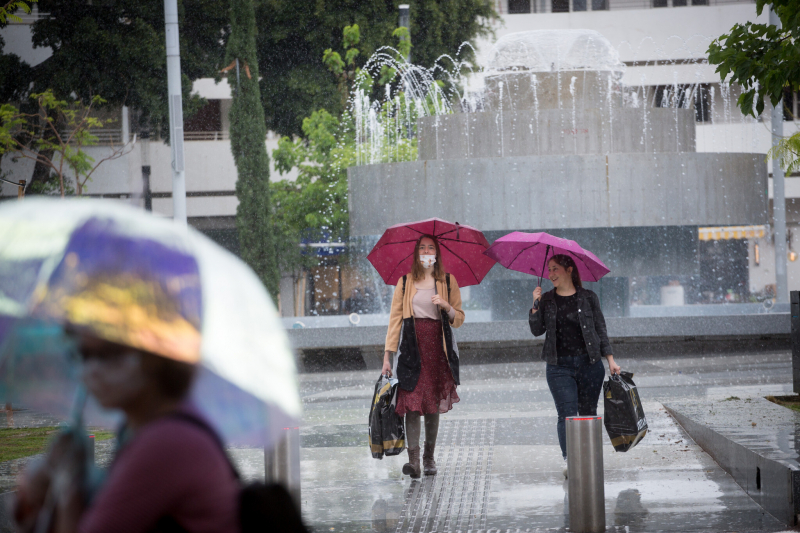
timesofisrael.com 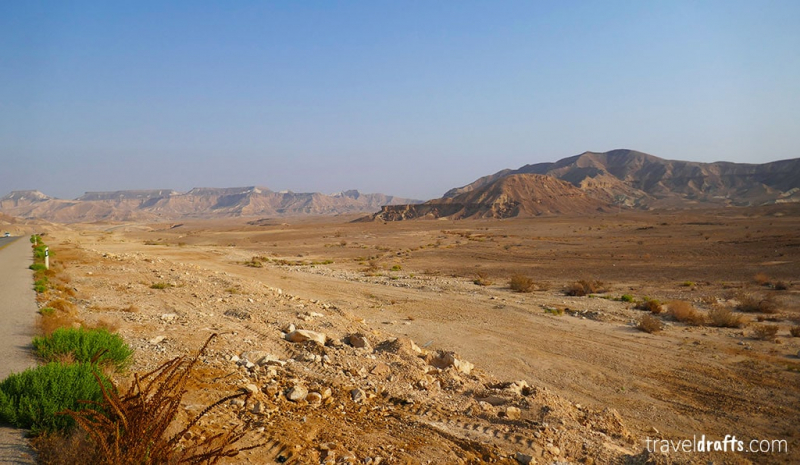
traveldrafts.com -
The Negev desert is Israel's hottest and driest region, yet it's also one of its most beautiful. This is definitely one of the top Things about Israel You Should Know. In reality, it's a great area to drive through (with the AC on) and take in the scenery. Many travelers advise visiting Eilat, but also spend some time in the Negev Desert. It features a few fantastic things to do and see that are ideal for a stopover or, even better, a night in the desert.
The spectacular Mitzpe Ramon crater, Timna Park, and several picturesque canyons, springs, and trails may all be found in the Negev desert. Among these, you should note the Red Canyon, which has a really wonderful, daring, and interesting hike. The Red Canyon hike is only a few miles long, but it's well worth it. During the hike, you must descend utilizing metal bars, ladders, and footholds in the rocks. It's a lot of fun, and it's not as hazardous as it sounds.
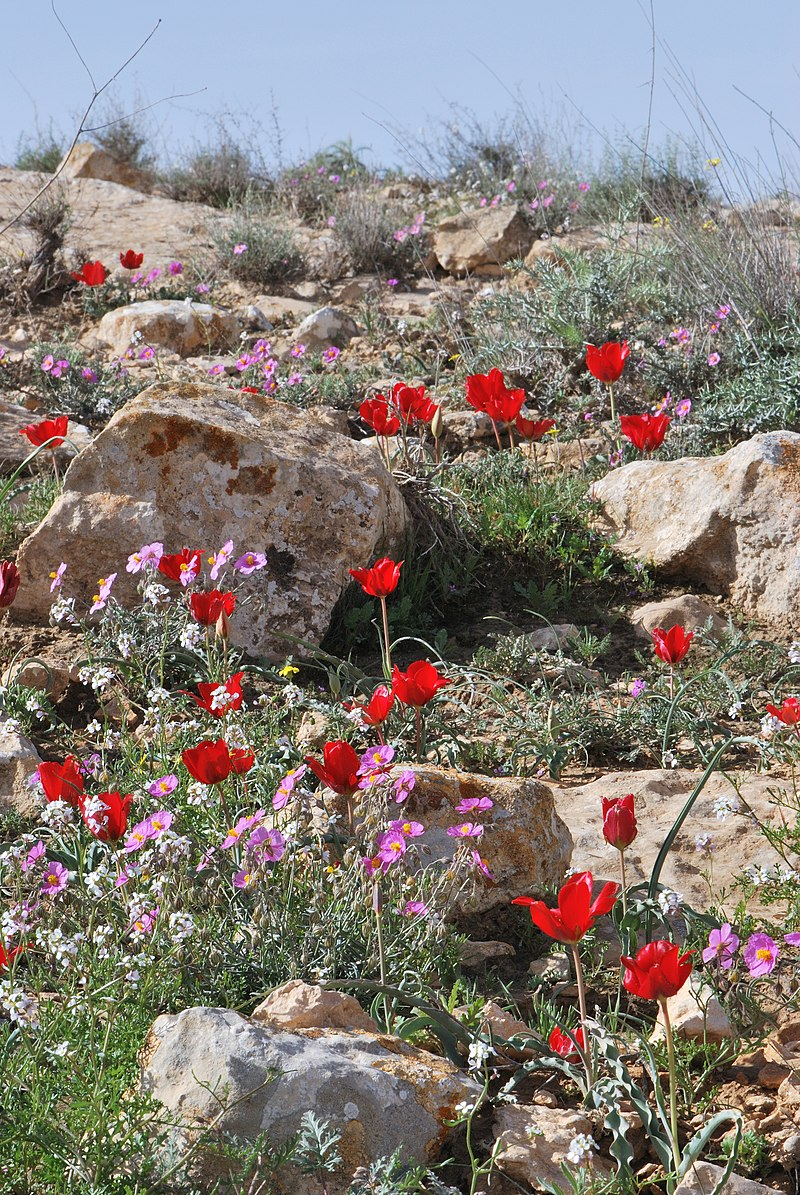
wikipedia.org 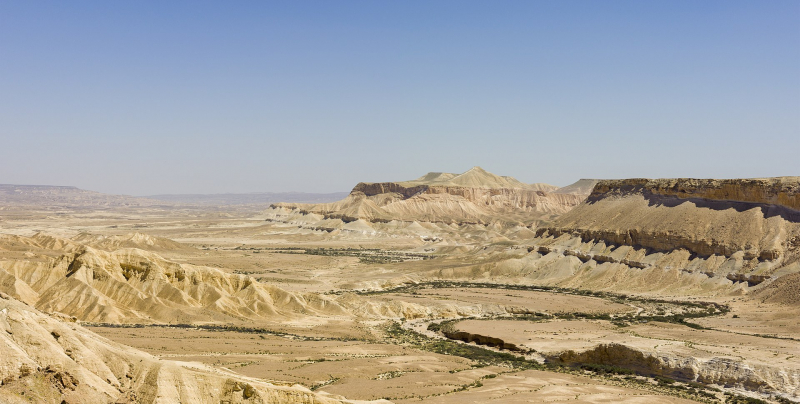
wikipedia.org -
You've probably heard of the Dead Sea and its unearthly characteristics... First and foremost, it is by far the lowest point on the planet, at around 400 meters below sea level. This is evident by how far you must drop to reach the water. You may also sense the region's heat, dryness, and aridity, as it is one of the most inhospitable areas on the planet.
The most amazing element of the lifeless sea, though, is its water. The dead sea's saline water is ten times saltier than ocean water. This makes it extremely dense, tough to dive into, and extremely easy to float. Going to the Dead Sea is a must-do experience in Israel since it is unlike anything else you will ever do. It's also completely free! Ein Bokek's beaches are open to the public and feature changing facilities and showers!
Please keep in mind that the water is extremely salty! It will burn if you have open wounds, it will go to your eyes (and possibly your lips), and your skin will feel strange afterwards.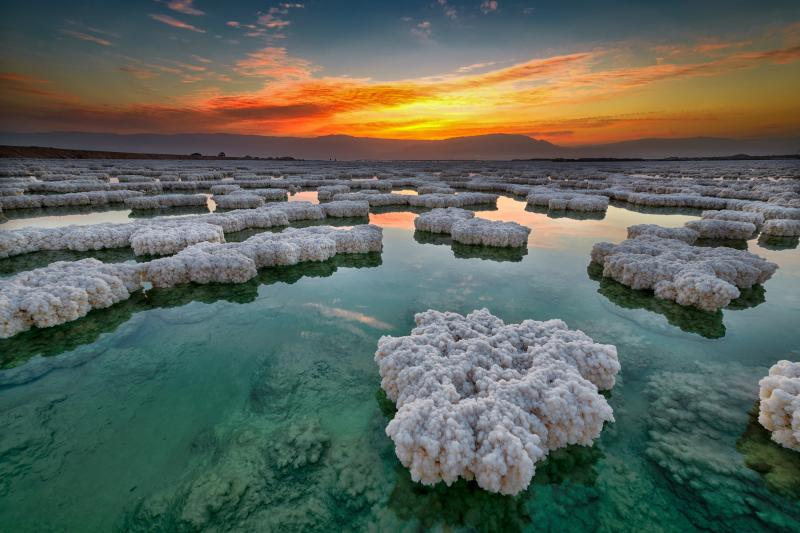
timeout.com 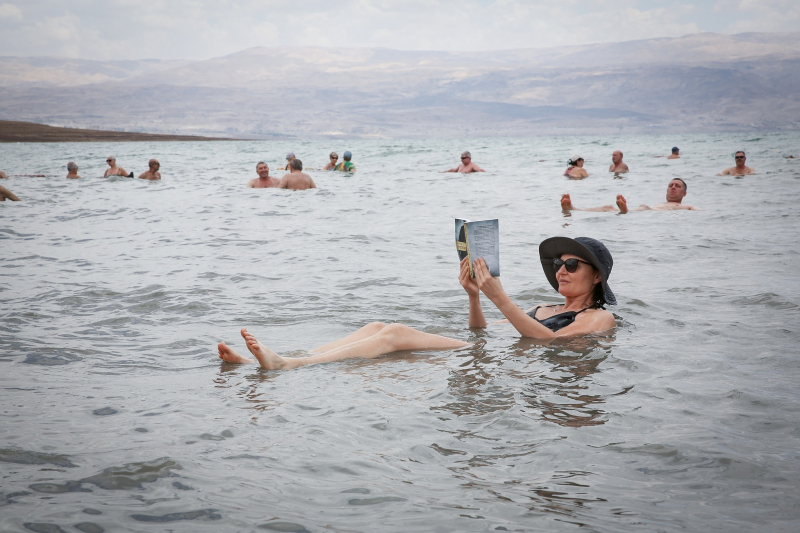
timesofisrael.com -
Most western citizens do not require a visa to enter Israel. Security checks are a serious business in Israel, both when you enter and when you depart. They will ask you various questions about yourself (which they will compare to your documentation), about your stay, and even about previous visits you have taken. When you leave, they will ask similar questions, but also where you have been in Israel if you were given anything, and so on.
You should be aware that many Muslim nations would not let you enter if you have an Israeli stamp/visa on your passport. As a result, when you enter Israel through Ben Gurion Airport, Israel no longer stamps your passport. Instead, you will be given a blue permit, which you must retain with you until you leave the country.
You may be asking if you may enter Israel if you have visited Muslim countries. The answer is yes. However, you may be asked additional questions or have your bags checked...
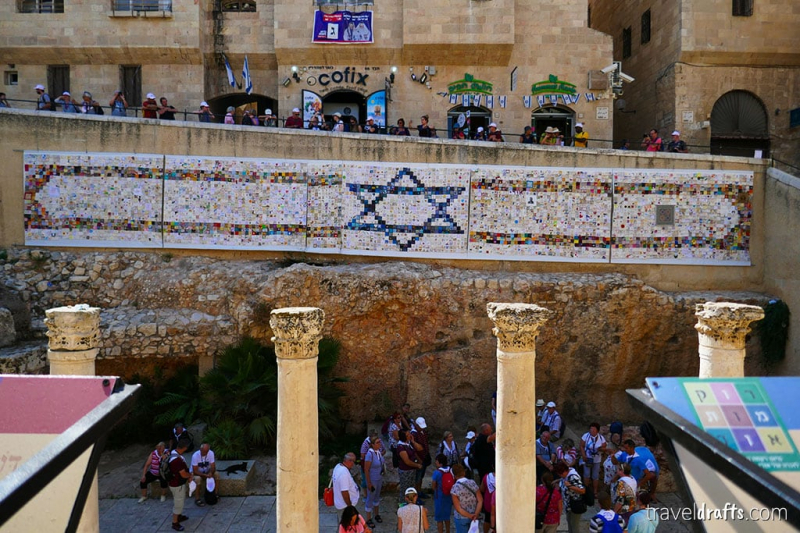
traveldrafts.com -
WIFI is available everywhere, as one would expect in a developed country like Israel. This is definitely one of the top Things about Israel You Should Know. Every hostel, hotel, and guesthouse will provide free Wi-Fi. Most restaurants and bars will also provide their customers with free Wi-Fi. In addition, several cities provide free wifi in multiple areas. Tel Aviv is a notable example, with it available in over 80 public spots around the city.
If it isn't enough, you may always purchase a data-enabled sim card. It's pricey, but you'll have data everywhere and more than enough to last you all day. The network coverage is excellent, and the internet connection is lightning quick. As a result, there are no major issues. The only significant drawback is that the card costs $20 USD, and you must also pay for the data plan.
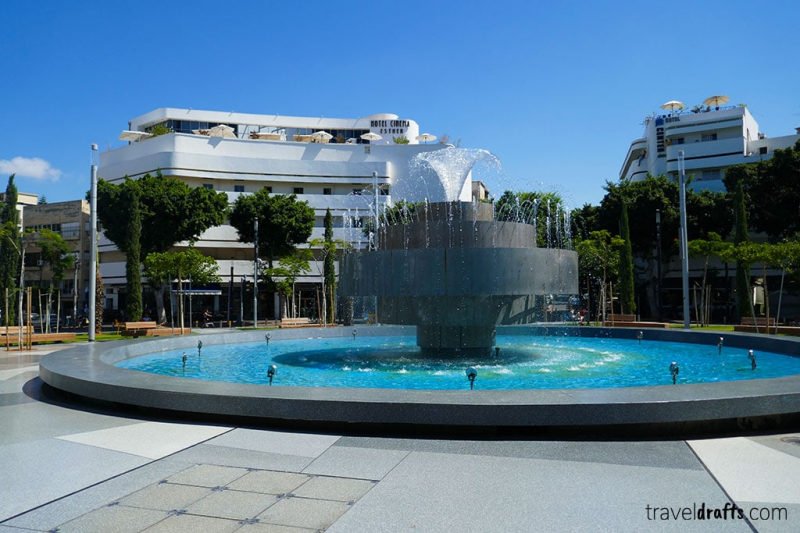
traveldrafts.com -
The Israelis absolutely love Matkot! They play it constantly, they take it extremely seriously, and they spend a lot of money on it... They'll be seen and heard everywhere. This is definitely one of the top Things about Israel You Should Know.
So what exactly is Matkot? Matkot is a popular Padel ball game in Israel, akin to beach tennis, and is sometimes referred to as the national beach sport by Israelis. Matkot has been played on Mandatory Palestine's beaches since the 1920s. Early depictions of the game include an Israeli artist Nahum Gutman's 1932 Tel Aviv beach scene depicting two young guys with rounded paddles and hitting a ball back and forth on the beach. Israelis play it vigorously and with a distinct approach. Some people dislike or are irritated by the frequent sounds of the balls and rackets.
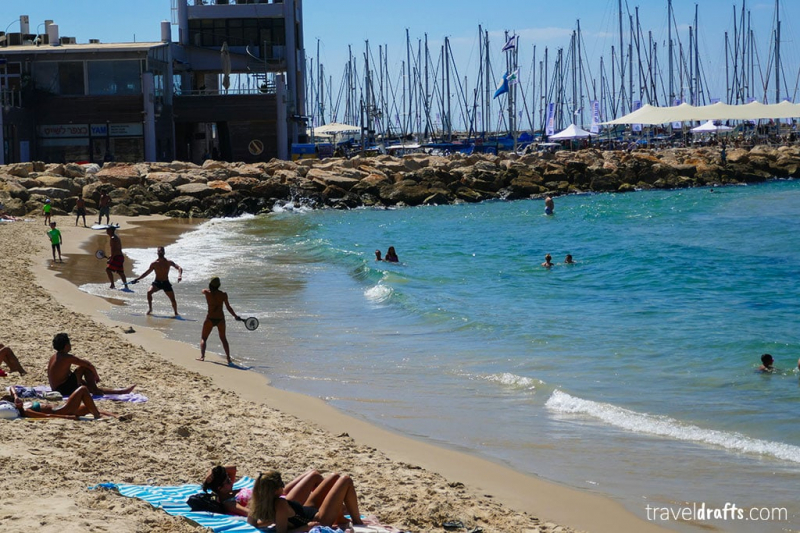
traveldrafts.com -
Israel is the first Jewish state to be established in about two millennia. For many Jews, the country signifies both the restoration of their historical homeland after centuries of diaspora and a safe sanctuary for the Jewish people. A history of immigration has shaped Israeli society, which has been heavily influenced by persecution and prejudices toward Jews in other nations. Since the country's inception in 1948, around 3.2 million individuals have immigrated from all over the world. 1 European Jews have contributed to some of Israel's major waves of immigration in its history. Significant migration occurred from North Africa and other parts of the Middle East. This long history of travel, combined with ongoing immigration to Israel (aliyah), means that the country has a very ethnically, religiously, and linguistically varied population.
Israel is also considered one of the most innovative countries in the world, a significant player in the high-tech industry, and boasts one of the world's most technologically knowledgeable populations. Indeed, Tel Aviv is regarded as the world's second most important hi-tech city (after the silicon valley in California).

theculturetrip.com 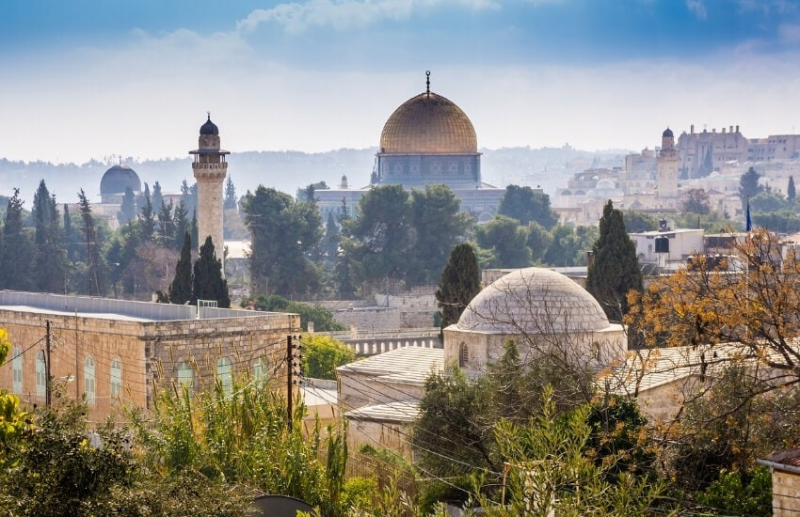
wander-lush.org -
Is it safe to travel to Israel? When arranging a vacation to Israel, this is one of the most frequently asked questions... The country (or region) receives extremely negative publicity in terms of security, with frequent reports of explosives, missiles, or civil disturbance!
Despite what you may hear in the news, Israel is a fairly secure place to visit. It's all too simple to identify Israel with Gaza and the West Bank. This is mostly what the news shows. However, keep in mind that they are not typical neighborhoods. They are most emphatically not tourist destinations. Tel Aviv, Jerusalem, the Negev, the Dead Sea, and the Galilee remain as safe as ever.
Furthermore, personal safety in Israel is always extremely good, and crime is extremely rare, especially when compared to many Western countries and towns. In an ironic twist, visiting and traveling in Israel is safer than staying at home in the United Kingdom, the United States, or most other Western countries.It is critical to differentiate between exterior and internal safety. There are numerous concerns about the state of Israel and its neighbors. And there may be a conflict between them. Traveling in Israel, on the other hand, is safe and simple (and even to the West Bank). If you have a chance to visit this country, let's try it and you will love it !!
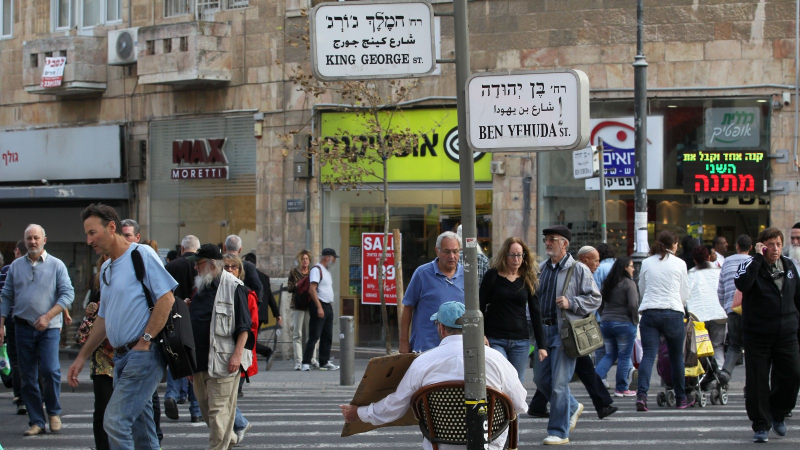
israel21c.org 
israel21c.org -
The best time to visit Israel is in the spring before the heat gets unbearable, or in September and October, when the heat begins to subside and temperatures turn light and pleasant. This spectacular weather is also an excellent time to visit Masada, an awe-inspiring historic fortification in the Negev Desert erected by King Herod. The Masada Snake Path, one of Israel's most famous hikes, begins near the fortress's base. If you wish to ramp up the pace, the Jerusalem Marathon, the country's largest marathon, takes place in March, attracting thousands of people.
Summer is exceedingly hot – daily temperatures of 30-35°C (85-95°F) are to be expected, making it difficult to travel outside... even to the beach. While temperatures spike during these months, they can also be great for visiting some of the best water parks. Shefayim, Israel's largest water park, debuts in May and covers 24 acres, including an adventure and paintball complex, while Aqua Kef, Israel's first and only floating water park on the Sea of Galilee, opens in March.
Traveling in the spring or autumn also implies that it is shoulder season for tourism in Israel, which means fewer tourists. You should also attempt to avoid religious and pilgrimage dates, as the country tends to get extremely congested during these times.
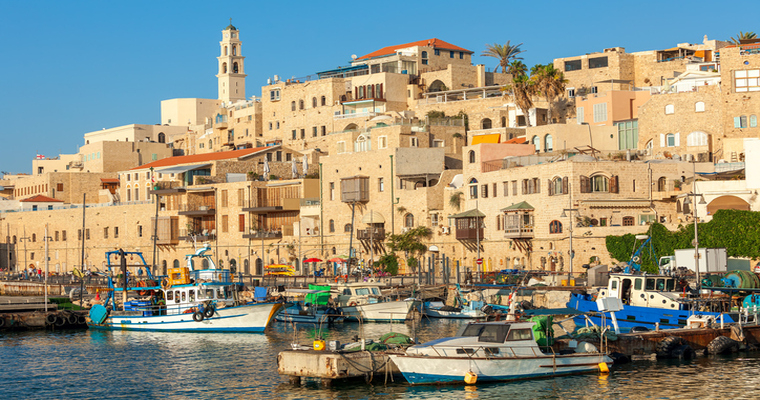
danhotels.com 
danhotels.com












